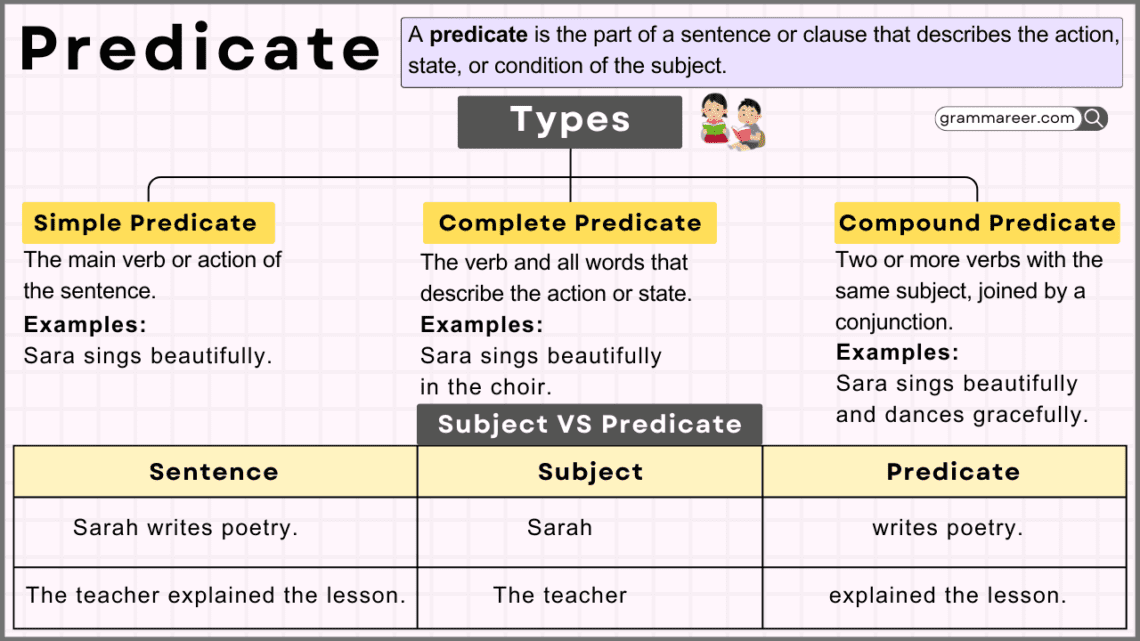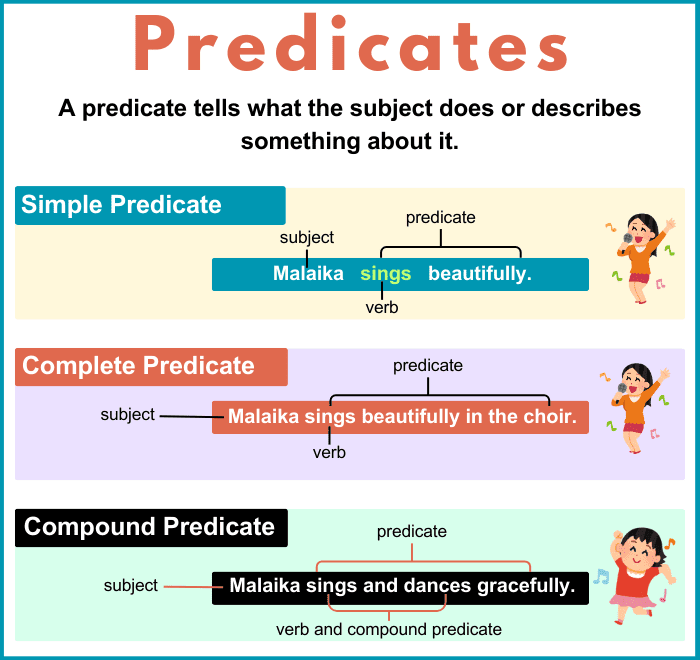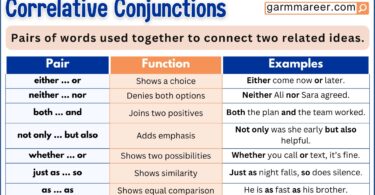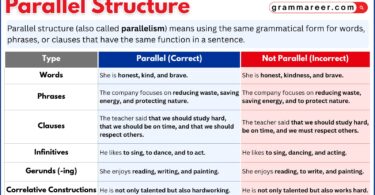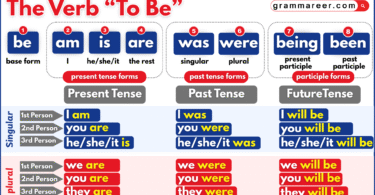A predicate is the part of a sentence that tells what the subject does or is. It always includes a verb and may also contain objects, complements, or modifiers. In English grammar, understanding predicates helps you build clear, complete sentences.
A predicate is the part of a sentence or clause that describes the action, state, or condition of the subject.
Table of Contents
Types of Predicates
Predicates can be categorized into three main types based on their structure and elements. Let’s explore each type with examples:
1. Simple Predicate
The simple predicate is the main verb or verb phrase in the sentence. It does not include any modifiers or additional details.
- Zain cooks.
The simple predicate is “cooks,” as it’s the main verb describing Zain’s action.
2. Complete Predicate
A complete predicate includes the verb and all the words that modify or complete its meaning.
- Aisha loves reading historical novels.
The complete predicate is “loves reading historical novels,” as it provides additional information about Aisha’s action.
3. Compound Predicate
A compound predicate contains two or more verbs or verb phrases that share the same subject. These verbs may be connected by conjunctions like “and” or “or.”
Examples:
- Hassan danced and sang beautifully.
The compound predicate is “danced and sang beautifully,” as it describes two actions Hassan performed.
Real-Life Examples of Predicates
Let’s look at some real-life examples to understand predicates better:
- Areeba is studying for her exams.
- The children played football in the park.
- Salim and Ali went to the market and bought groceries.
- The sun is shining brightly.
- They have completed their homework.
- The birds are chirping in the trees.
- Malaika and her friends are planning a picnic.
Predicate vs Subject
A subject is the part of the sentence that tells who or what the sentence is about. In contrast, a predicate describes what the subject does, experiences, or is. Both are necessary for a complete sentence.
For example:
- Sarah writes poetry.
“Sarah” is the subject, and “writes poetry” is the predicate as it describes what Sarah does.
- The teacher explained the lesson.
“The teacher” is the subject, and “explained the lesson” is the predicate because it tells us what the teacher did.
Here’s the further clarity about Subject and Predicate:
| Sentence | Subject | Predicate |
|---|---|---|
| Sarah writes poetry. | Sarah | writes poetry. |
| The teacher explained the lesson. | The teacher | explained the lesson. |
| They are enjoying their holiday. | They | are enjoying their holiday. |
Why Predicates Are Important in Sentences
Predicates are vital because they:
- Complete the meaning of a sentence.
- Provide essential details about the subject’s action, state, or condition.
- Help create clear and expressive communication by giving context to the subject.
Without a predicate, sentences would remain incomplete and fail to convey meaningful information.
For example:
- Incomplete: The cat.
- Complete: The cat is sleeping under the table.
FAQs
A predicate in English grammar tells what the subject does or describes something about it.
Example: In “Amira is studying,” the predicate is “is studying”, describing what Amira is doing.
To find the predicate, locate the verb and check all the words that provide additional information about the action or state of the subject.
The subject is the “who” or “what” the sentence is about, while the predicate explains what the subject does or what happens to it.
Simple Predicate, Complete Predicate, Compound Predicate
Conclusion
Mastering predicates is fundamental to understanding English grammar. They bring life and meaning to sentences by detailing the subject’s actions, states, or conditions. Whether you’re writing simple or complex sentences, identifying and using predicates correctly will significantly enhance your language skills.
You May Also Like

